While all of their music is produced spontaneously, PAKT—the all-star outfit that takes its name from the first initials of guitarists Alex Skolnick and Tim Motzer, bassist Percy Jones, and drummer Kenny Grohowski—believes in the late saxophonist and composer Wayne Shorter’s maxim that “improvisation is just composition sped up.” The foursome’s collective technical ability, open minds, and desire to simply create all combine to make the group an ensemble without boundaries.
PAKT manages to have broader appeal than many of their peers in the free-improv niche because its players have such diverse influences and backgrounds, and high profiles. Arguably, one’s guitar experience couldn’t be more eclectic than Skolnick’s. He found massive success in the late 1980s and early ’90s with the thrash-metal group Testament, then garnered both critical and popular acclaim as a straight-ahead jazz guitarist. Additionally, Skolnick has participated in numerous tribute concerts and recordings, honoring the likes of Allan Holdsworth, Iron Maiden, and Leslie West.
“I’m of the mind that improvisation leads to composition, and many times the improvisations are the compositions.” - Tim Motzer
While Tim Motzer’s guitar output tends to stick within the realm of free improv—as much as 75 percent, he says—it takes on a variety of forms: dance accompaniment; duos, trios, and larger groups; and film and television scores, including for True Blood and Adam Sandler’s Hustle. “I’m of the mind that improvisation leads to composition, and many times the improvisations are the compositions. They’re just realized spontaneously,” says Motzer, echoing the Shorter principle.
Alex Skolnick's Gear
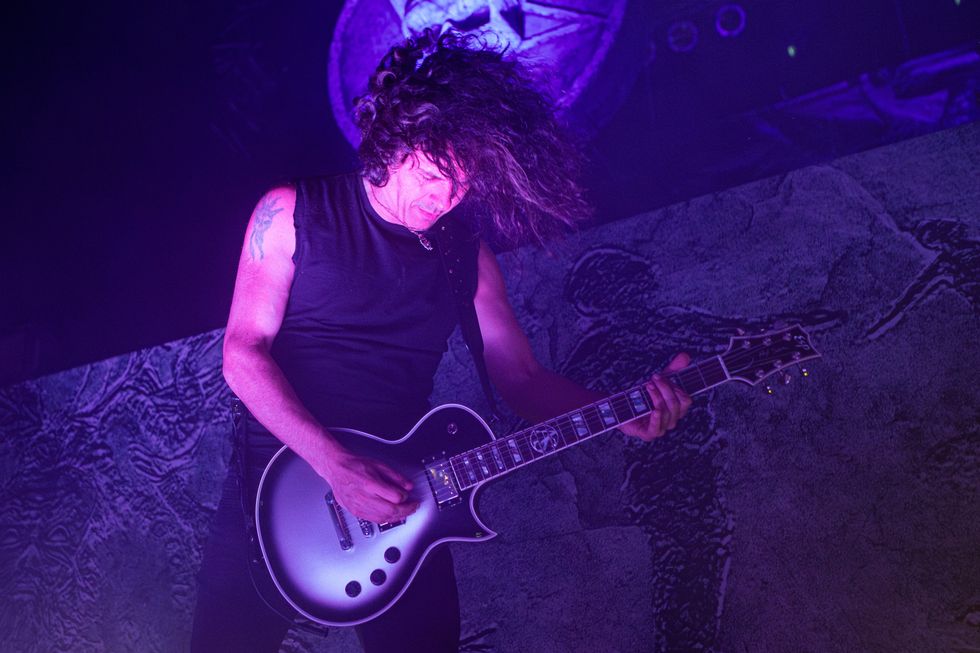
Alex Skolnick onstage with Testament, which he joined in 1983. After initially departing in 1992, he rejoined in 2005 and has stayed in the fold since.
Photo by Tim Bugbee/Tinnitus Photography
Guitars
- ESP Alex Skolnick FR with Seymour Duncan Alex Skolnick Signature pickups
- Allparts ’62/’63 Relic Stratocaster
Amps
- VHT D-50H
- VHT 1x12 speaker cabinet
Strings
- D’Addario XS or NYXL (.011-.049) for ESP Alex Skolnick
- D’Addario XS (.010-.046) for AllParts Strat
Picks
- Jim Dunlop Ultex 1.5mm
Effects
- TC Electronic Polytune
- JAM Pedals Wahcko
- JAM Pedals TubeDreamer 88
- J. Rockett Audio Designs Blue Note Overdrive
- Moollon Signal Boost
- Electro-Harmonix Micro Synth
- MXR Phase 95
- JAM Pedals WaterFall
- Crazy Tubes Circuits Splash
- TC Electronic Flashback
- Seymour Duncan Andromeda
- Electro-Harmonix POG2
- JAM Pedals Delay Llama (Custom Painted, Va
Gough “Starry Night”) + Expression Pedal - Earthquaker Devices Pitch Bay
- IK Multimedia AmpliTube X-Space Digital Reverb
- Line 6 DL4 MkII
- Boomerang III Phrase Sampler
- Dunlop DVP4 Volume (X)
Along with Jones and Grohowski, who have played with Brand X and other forward-thinking artists, Skolnick and Motzer have documented PAKT’s latest musical quests on the new, two-disc No Steps Left toTrace. Including their eight live albums, this is the group’s 10th release, featuring studio recordings and live performances. “We have four different players, from different areas of music, with mastery of their instruments, coming together,” asserts Motzer. “The chemistry was an immediate, ‘Wow!’”
Although all of PAKT‘s members are virtuosos, their work appears completely devoid of ego. “I’ve found over the years that, as a listener, I prefer a group dynamic to it being all about the individual,” Skolnick declares. “I have total respect for the featured soloist approach, but it’s not what I want to do. I can remember when I first got into jazz and improvised music, I took just as much interest in good accompaniment.”
Motzer maintains that the group isn’t consciously avoiding solo cliches. “In the early days of PAKT, Alex and I might blow a long time, and that’s cool, but what we’re trying to do now is more about the collective,” he says. “Forms are being created. Percy is finding the corners. We’re all identifying melody lines, little riffs that start giving shape to the piece that we’re doing.” Skolnick adds, “Sometimes you don’t need to play anything. Silence is great.”
Psychedelic Jazz Fusion
While PAKT performances are typically attended by metalheads, fusion enthusiasts, and general guitar nerds, the band has even started to attract fans of psychedelic music, à la the Grateful Dead, due to their spacier explorations—though Motzer notes that his psych influences are rooted in a myriad of British progressive bands. “My point of reference would be Gong and Steve Hillage’s solo work,” he explains. “Maybe Pink Floyd because I grew up with all that stuff. And King Crimson, of course—how can you not be inspired by them? So that probably peeks through.”
“Sometimes you don’t need to play anything. Silence is great.” - Alex Skolnick
On the other hand, Skolnick’s trippy propensities owe more to Brian Eno’s ambient music: “Another Green World is a big influence. I remember hearing those bass parts and thinking, ‘Wow! Who plays bass like that? That’s wild bass playing.’ Then, after we started PAKT, I was talking with Percy about it … and that’s him! That’s Percy!”
Additionally, Skolnick is inspired by early jazz-rock fusion recordings. “I’m influenced by space jazz from the late ’60s, early ’70s,” he explains. “For example, Terje Rypdal—I can’t believe more people don’t know his name. And Larry Coryell’s Spaces. It’s not music I’ve ever directly transcribed but I enjoy it as a vibe and listening experience. Also, Chick Corea’s Return to Forever before that was the band name and before he added guitarists. There’s something about those records that feels psychedelic. It was before jazz-rock was a genre, and the music is unpolished, uncharted, and exploratory. To me, that’s a big inspiration for PAKT.”And explore PAKT does. Unlike many jam bands who meander aimlessly through their improvs, PAKT’s music is more an investigation of rhythms, melodies, and tonalities: searching, discovering, developing, and moving on. As Motzer puts it, “It’s not like we’re going out to blow solos but more to create ‘sound worlds.’ It’s very much dealing with the unknown.”
The Serendipity of Effects
Alongside their technical virtuosity, a multitude of effects also play a major role in Skolnick and Motzer’s sounds. An abridged list of both guitarists’ effects reads like a Wikipedia entry on the history of guitar pedals. Still, whether creating the ethereal atmosphere on such tracks as “The Ghost Mill” or the abstract turbulence of “Wormhole,” the effects are consistently used in the service of the music, and sometimes dictate its trajectory.
“I really love when the pedals are doing stuff I didn’t expect,” says Motzer. “The sabotage aspect of pedals … I’ve always loved that. It just shoots the music off into some other terrain, and it’s something else to react to. I switch my brain off when I play and just listen and be and flow in the music. The pedals are an augmentation of that: more layers and textures that inspire me to go further.”
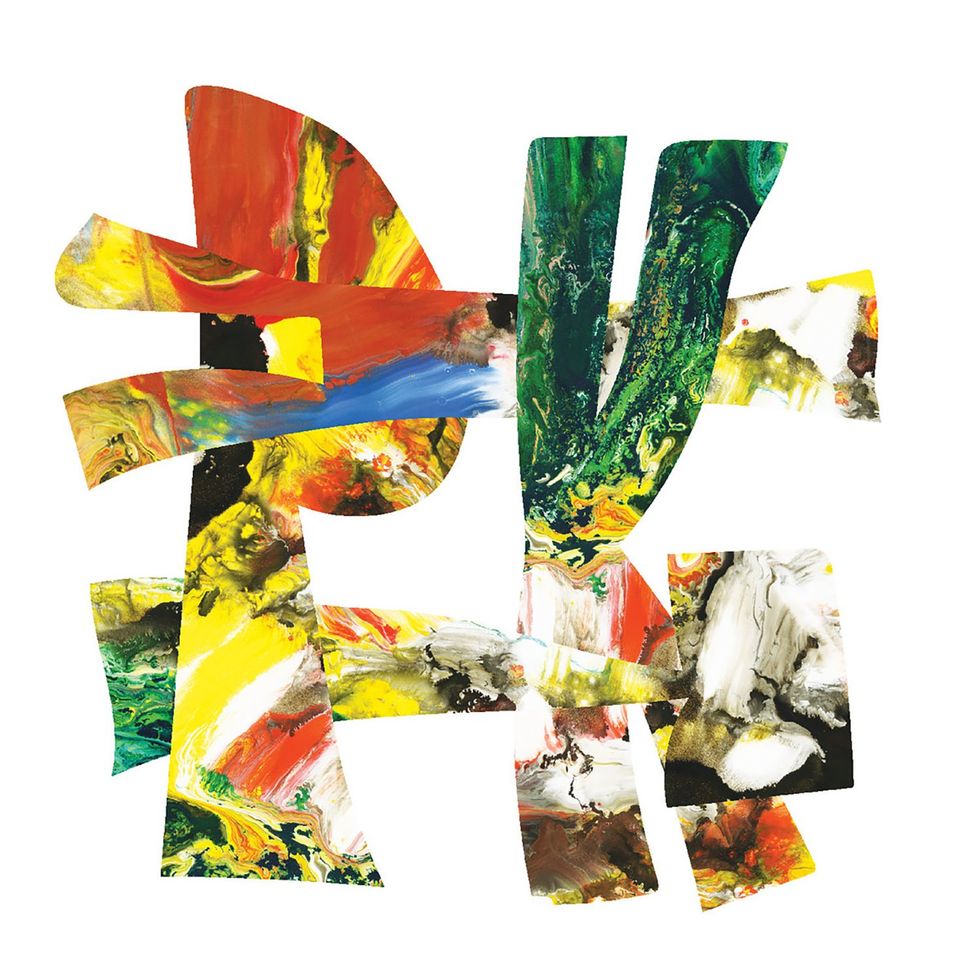
No Steps Left To Trace is a double-shot from the improv ensemble, featuring an LP of original compositions alongside a full live record.
Skolnick agrees: “When we start the show, I have my effects set so they’re pretty comfortable, but during the course of the show I will make adjustments and see where they go. Sometimes they go into uncharted territory.”
In addition to mainstays such as modulation, delay, and distortion, PAKT also incorporate a fair amount of live looping into their performances. These loops might be used for ambient drones, as heard on “On the Other Side, Part 1,” or to modify any given melodic line, as heard in “NYC III.” Motzer explains, “The multi-loopers can do different speeds. I have a Montreal Assembly pedal that plays an octave higher and twice as fast. It does some astounding things.”
Tim Motzer's Gear
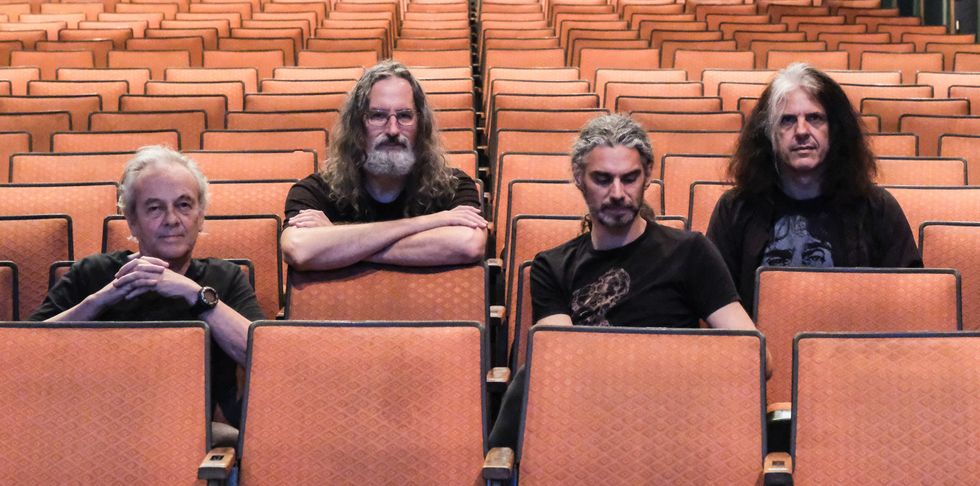
Decades before PAKT, Alex Skolnick (far right) had been influenced by Percy Jones’ (far left) bass on Brian Eno’s ambient recordings.
Photo by Avraham Bank
Guitars
- Takamine EF341SC
- Takamine EF381SC
- Godin Multiac
- Danelectro baritone
- G&L Comanche
Amps
- Fender Deluxe Reverb
- Fender Hot Rod Deluxe
Strings & Picks
- D’Addario 80/20 Bronze Acoustic Guitar Strings Light (.012-.053)
- D’Addario Electric (.012-.053)
- Ernie Ball Slinky (.010-.046)
- Jim Dunlop Jazztone 477-208 picks
Effects
- DigiTech Whammy Ricochet
- Eventide H9 Max
- TC Electronic Overdrive/Boost
- Chase Bliss Lossy
- Chase Bliss Blooper
- Red Panda Tensor
- Drolo Strands
- Paul Trombetta Burning Sensation
- Pigtronix Cosmosis
- Roland GR-33
From years of experience, Skolnick and Motzer have advice for players looking for new pedals. “We’re in the richest time for affordable effects,” Motzer says gleefully. “Pedals are coming from China that are $40, which actually sound good. So people can start out and grab pedals that don’t cost that much. It’s a transformational moment in sound.”
Skolnick concurs that one doesn’t need to break the bank to get new sounds. “Many conventional pedals have options that can get really outside,” he says. “If you take a reverb pedal and crank the decay, you suddenly get this instant atmosphere. Similarly, a typical chorus or flange pedal, if you crank the speed to 10, you’ll get this wild sound. Then I loop it. There’s a drone. Then I dial down the decay and I can play over that. Almost any pedal has an extreme function. One pedal in particular is the [JAM Pedals] Delay Llama, which has an independent expression pedal, and by turning that up and down it becomes not a guitar at all—wild, synthesizer-like sounds.” Skolnick warns that if you overindulge the pedal knobs, then you should play less on the fretboard, letting the effects do the work.
Skolnick says his signature ESP model is like “a hot-rodded Les Paul” with a whammy bar. “I was never a big whammy bar person, because by the early ’90s everybody was crazy with the whammy bar, so I told my guitar techs, ‘Lock up all the tremolo bars. I want to make a statement without that.’ But now, since I think I’ve proven I can get by without one [laughs], I’ve allowed myself to start using it.” In addition to his ESP, Skolnick plays an Allparts Strat with PAKT.
Meanwhile, Motzer’s main guitar for years has been a Takamine acoustic, which he plays “like a drum” with loops. This came out of Motzer’s performances with various dance troupes. “I could create these structures for dancers, and we’d interact back and forth, so we would improvise together,” he says. “That’s how that guitar ended up being my main axe. It just felt like more of a complete expression of who I am.” When asked if he was playing “guitar percussion” on No Steps Left To Trace, Motzer told me, “For sure, but I couldn’t tell you where!” For their 2024 tour, Motzer says he’ll switch things up with solidbody G&L and Godin options, the latter with a synth-guitar component.
The Ever-Unfolding Listening Ensemble
While both guitarists agree that there are plenty of improvisational tactics to keep their playing fresh and inventive, they’re adamant regarding the most vital aspect of group improv: listening. Skolnick attributes his listening habits in PAKT to the elite-level skill and imagination each of his bandmates have. “This group is just a great excuse to listen, to play things that accompany the whole picture.”
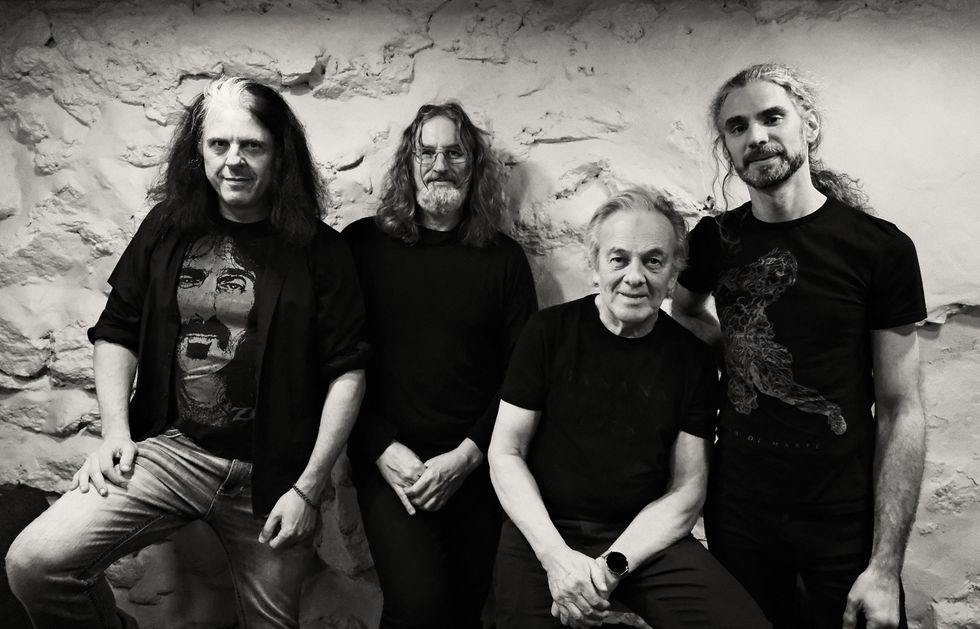
The individual skill levels in PAKT are off the charts, but the musicians are less concerned with their own playing, and more interested in listening to what their bandmates are doing.
Photo by Avraham Bank
Motzer sums it up: “It’s really about listening, reacting to each other, and trying to make the best music we can. When we play, we don’t know what’s going to happen. You don’t know what the mood of the night is going to bring. We are continually trying to unfold this thing that we have. And there is such a trust there that each time we get together, it gets more exciting.”
YouTube It
During the lockdown in August 2020, PAKT assembled in a Brooklyn studio to map out “Sacred Ladder” from their very literally self-titled 2021 LP, Percy Jones, Alex Skolnick, Kenny Grohowski, Tim Motzer.


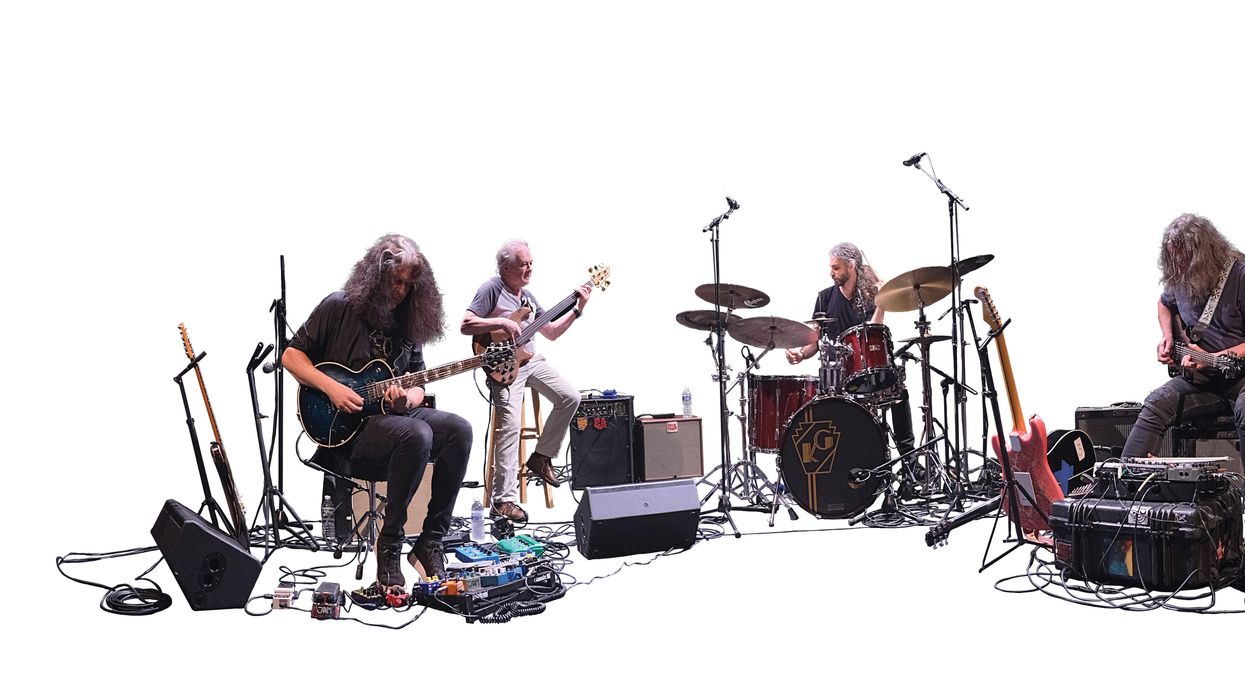







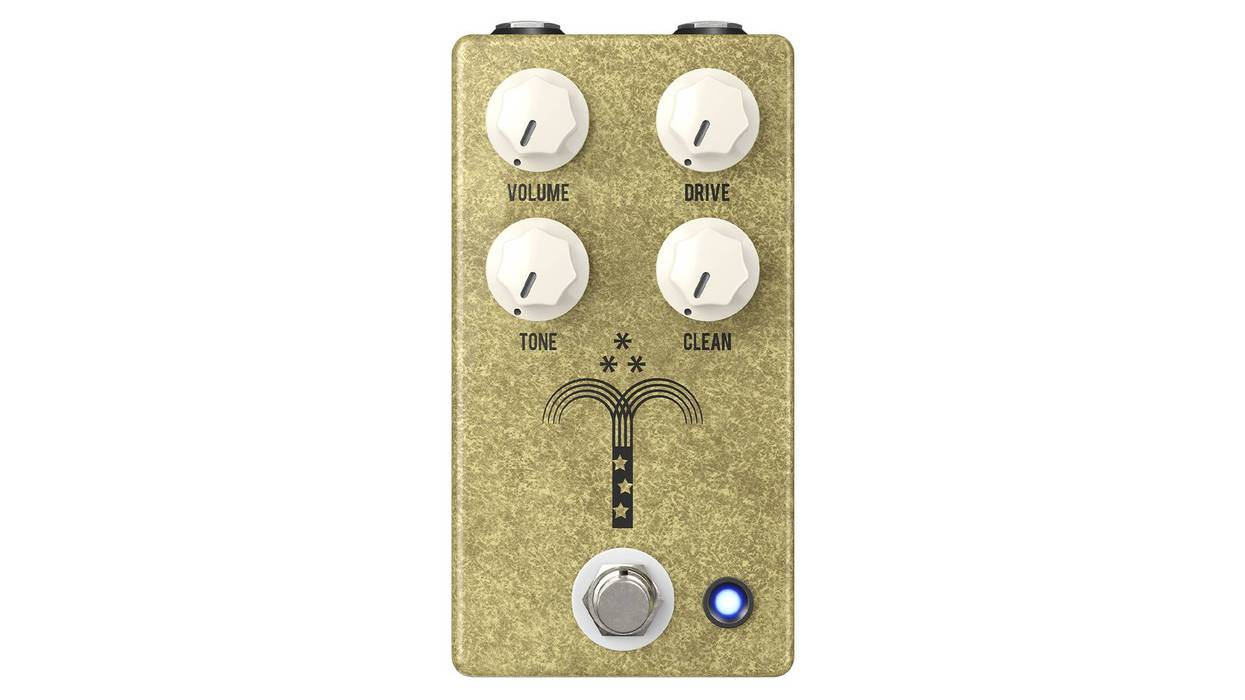
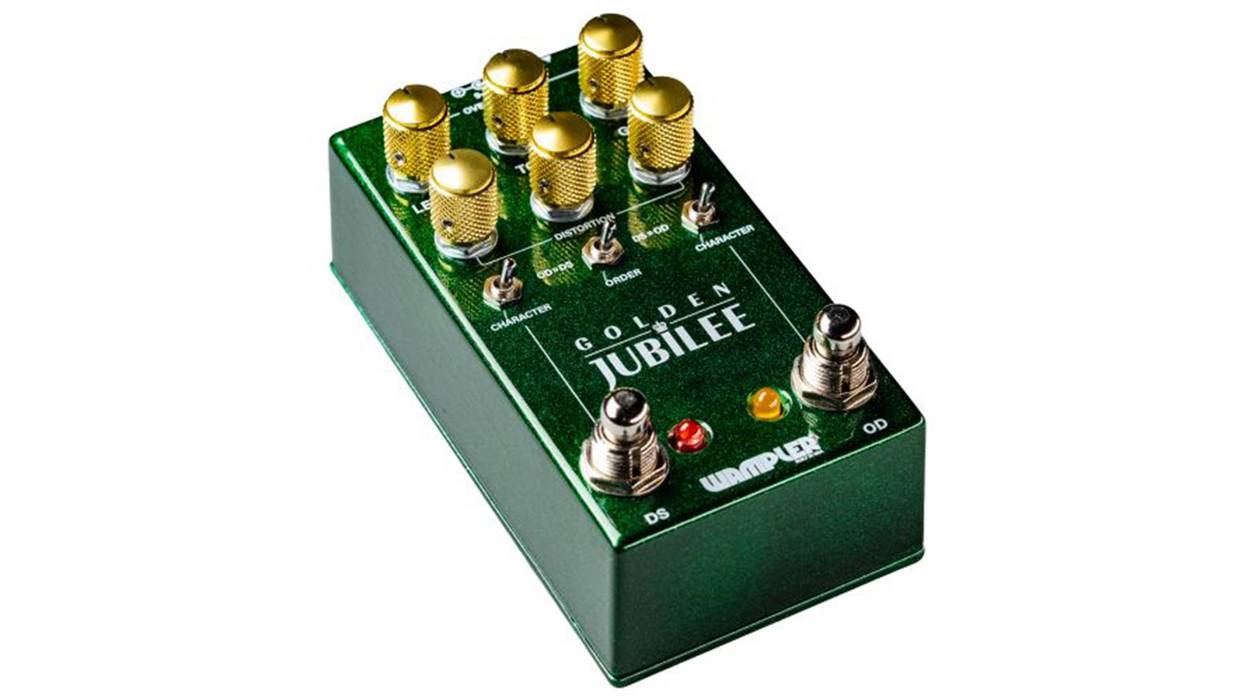
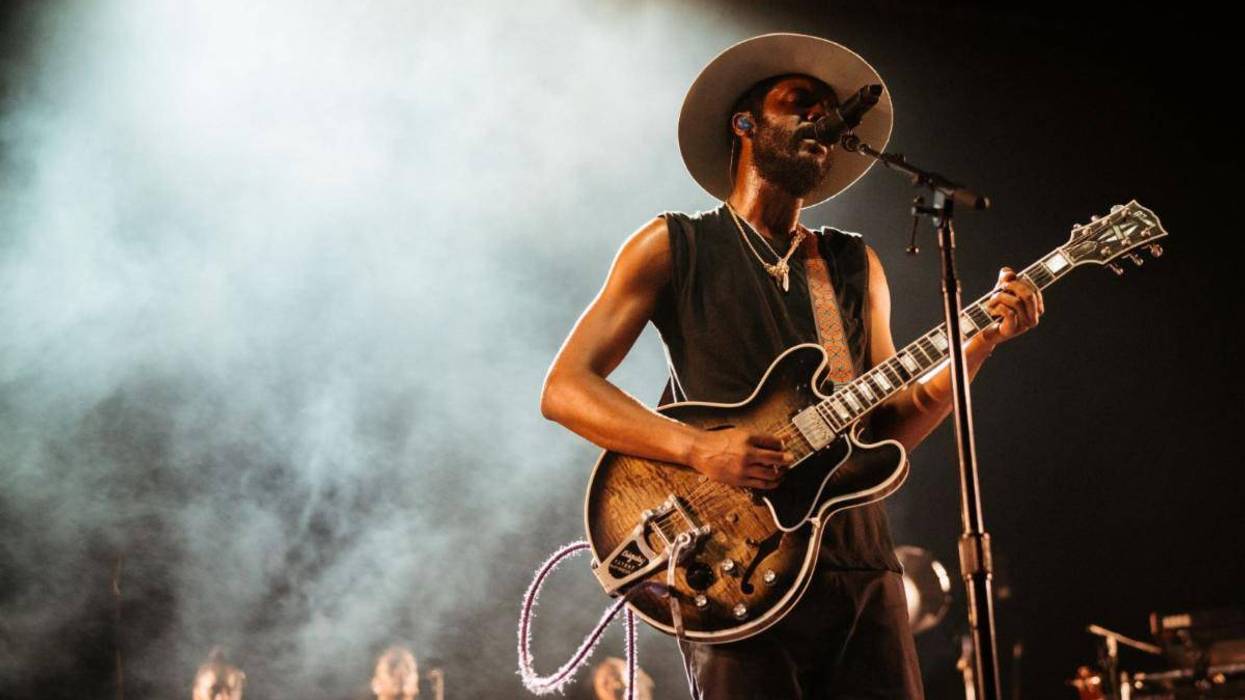
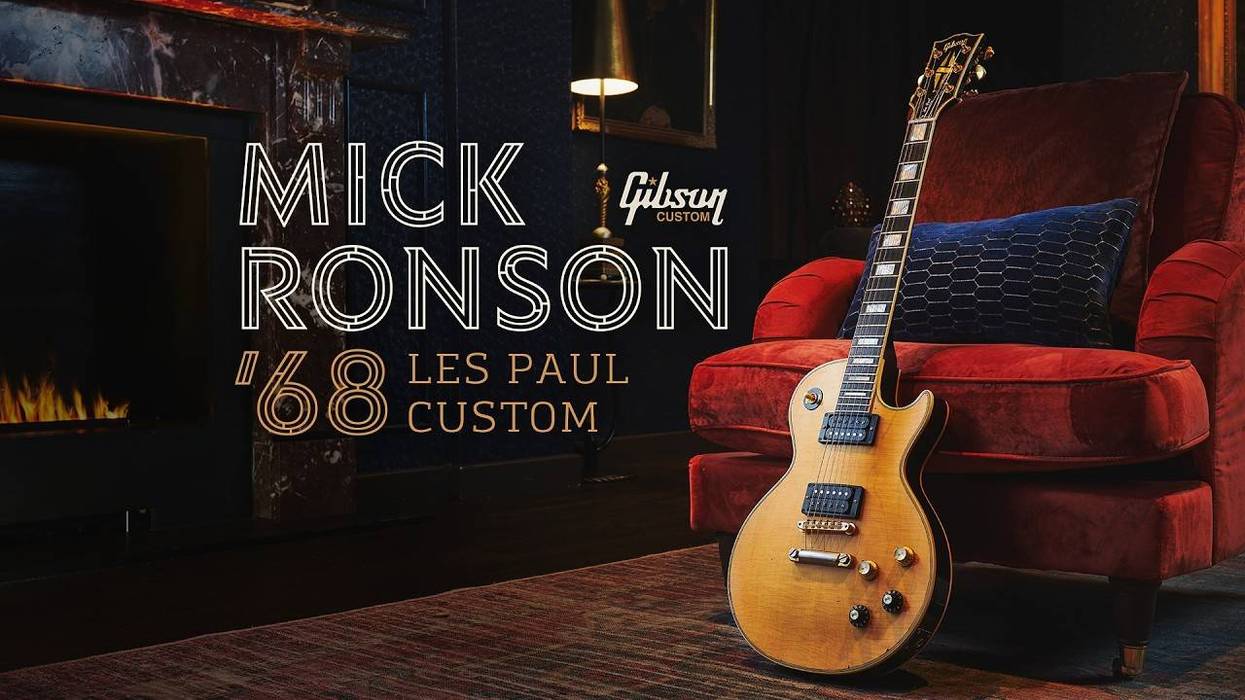





![Rig Rundown: Russian Circles’ Mike Sullivan [2025]](https://www.premierguitar.com/media-library/youtube.jpg?id=62303631&width=1245&height=700&quality=70&coordinates=0%2C0%2C0%2C0)






